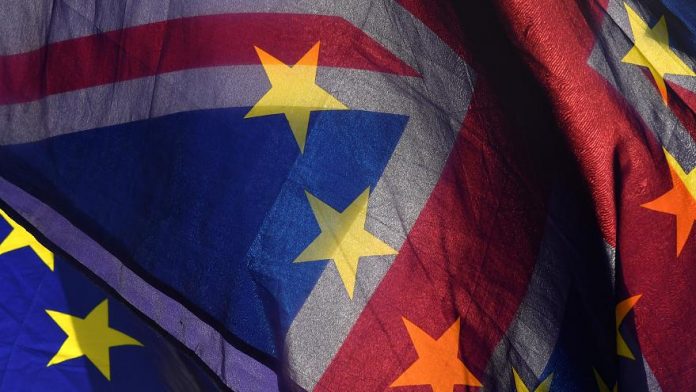LONDON: Britain is expected to keep the door open for European Union banks and investors after Brexit to try to preserve London’s global financial clout, irrespective of whether it gets a good trade deal from the bloc, bankers and industry officials say.
Nerves in the City of London financial district were rattled last month when the UK government proposed future financial services trade with the EU based on “reciprocal” arrangements.
Bankers worried this meant that if the EU did not give Britain broad market access, London would impose tit-for-tat restrictions on EU banks or even tighten up treatment of all foreign lenders.
“But the Treasury later told us it does not mean that. Reciprocity would make the City very nervous,” a senior international banker in London said, speaking on condition of anonymity due to the sensitivity of the matter.
The Treasury had no immediate comment on Tuesday.
At stake is one of the most liberal and lucrative financial services trade regimes in the world.
“The City has grown up by being everyone’s playground and that needs to continue. The White Paper was not to be read as limiting market access coming into the UK,” said a senior financial sector official, referring to the government’s Brexit plan published last month.
Britain allows non-EU “third country” banks to operate as a wholesale – but not retail – branch in London, meaning it doesn’t require costly capital cushions that subsidiaries have.
It also allows overseas entities to offer a wholesale service without a permanent UK base, subject to some conditions.
“The UK’s approach to third country firms may be regarded as one of the main factors which have made it one of the world’s leading financial centres,” said a European Parliament study on Brexit.
LEVERAGE
Bankers are waiting to see how EU bank branches in Britain and UK branches in the EU will be treated in future under any trade agreement or no deal scenario.
UK policymakers say Britain should get good terms because the bloc needs City expertise to manage 1.2 trillion pounds of assets for EU investors, issue bonds and float new companies.
The bloc is also slow to create its own capital markets union to substitute the City, and many EU companies don’t want hikes in costs from fragmented markets, policymakers say.
But 43 percent of UK international and wholesale financial services revenue comes from the EU, the sector’s biggest export market and worth 26 billion pounds. Deutsche Bank estimates that Britain’s current account deficit would be 40 percent higher without this.
In a sign of UK caution, consultants advised regulators to put their open approach to foreign banks into question as a negotiating tactic, but the government did not want to do that, a senior financial official said.
The Treasury said in a June paper that if there was no transition deal to smooth the Brexit process after the official departure day in March 2019, then as a general principle Britain would default to treating EU states largely as it does other third countries.
But there are instances where “we would need to diverge from this approach,” it said, without elaborating. It is due to publish a new paper on no-deal contingency plans shortly.
The EU has also said it will treat Britain like other third countries.
“The EU has not given any indication that it won’t allow UK banks to establish branches in the bloc,” said Vishal Vedi, Deloitte’s financial services Brexit leader.
NO TIT FOR TAT
In another sign of pragmatism, Britain has proposed a “temporary permissions regime” to allow EU banks and insurers with branches in London to continue operating after March for three years, if there is no transition period.
The EU has not reciprocated for UK bank branches in the bloc, but is urging lenders in the City to gets licences for their European hubs.
Andrew Bailey, head of Britain’s Financial Conduct Authority, says a key question is whether EU customers will be allowed to continue doing business in London after Brexit. France has taken a tough stance on City access to the bloc.
“The FCA’s optimal position is open access, but if we can’t get that, what does the UK do?” said Jonathan Herbst, a financial services lawyer at Norton Rose Fulbright.
Britain will also be under pressure to respond if Brussels rejects its calls to ease up the EU’s “equivalence” rules for market access used by Japan and the United States. The rules give some market access to third-country firms if their home regulators have equivalent policies to those used in the EU.
The equivalence rules have also been put into UK law and in theory, Britain could apply them against the bloc in retaliation.
But no matter how difficult the EU may be in respect of UK firms trying to do business there, Britain has no choice but to stick with open borders, said Simon Gleeson, a financial services lawyer at Clifford Chance.
“There is no way the UK can go for tit-for-tat. What the UK can’t do is maintain openness for Americans and impose restrictions on Europeans. The only leverage we have is that if you cut off access to us, you are hurting yourself, “ he said.




